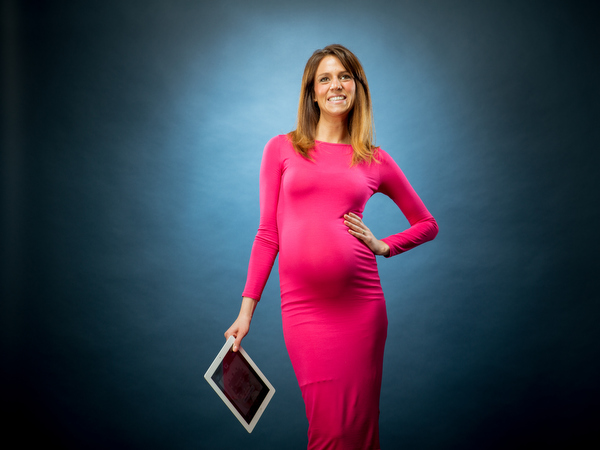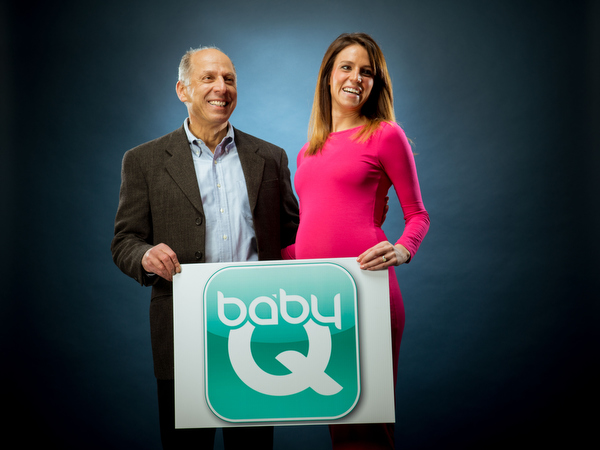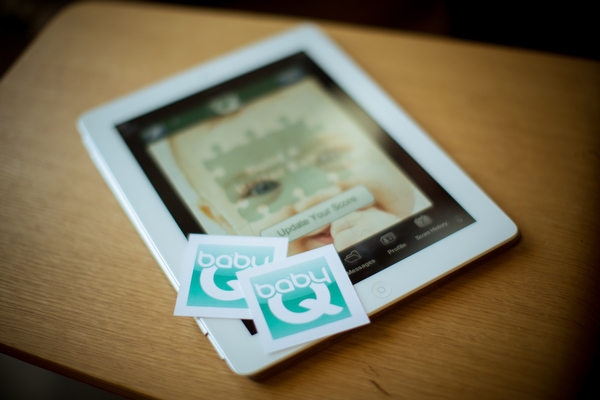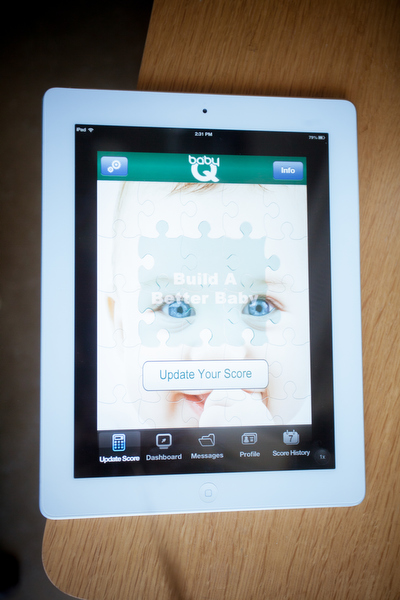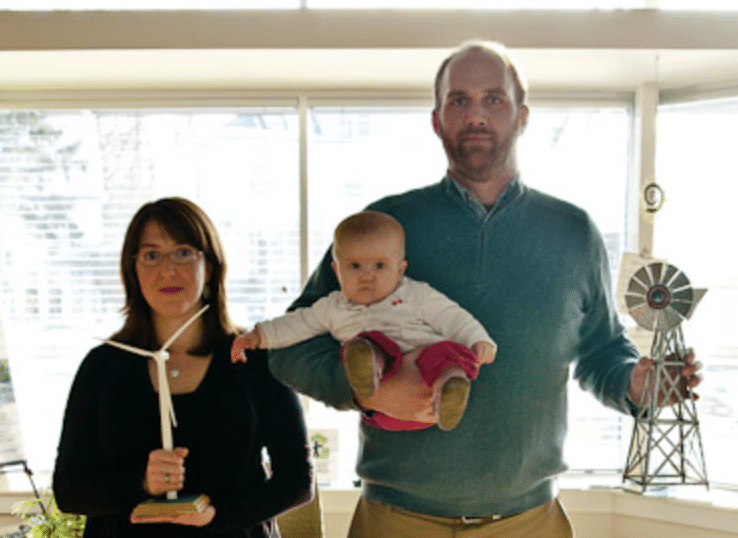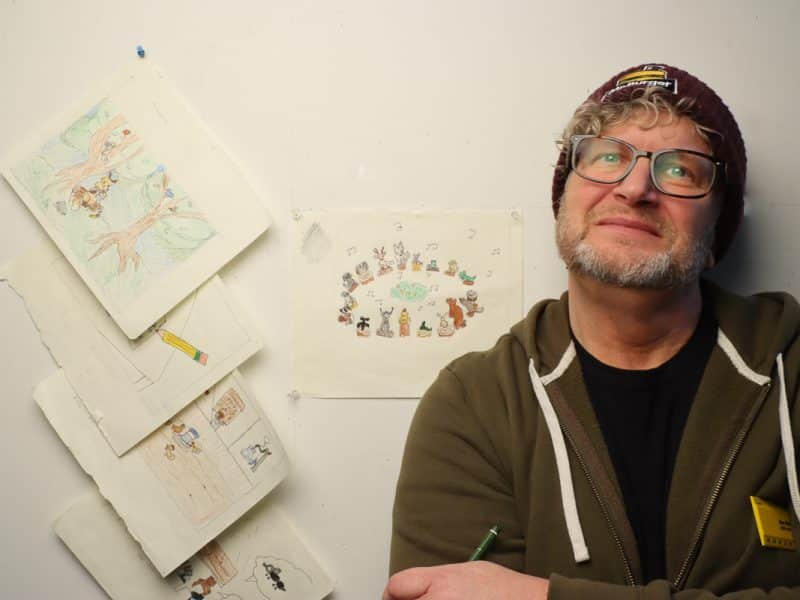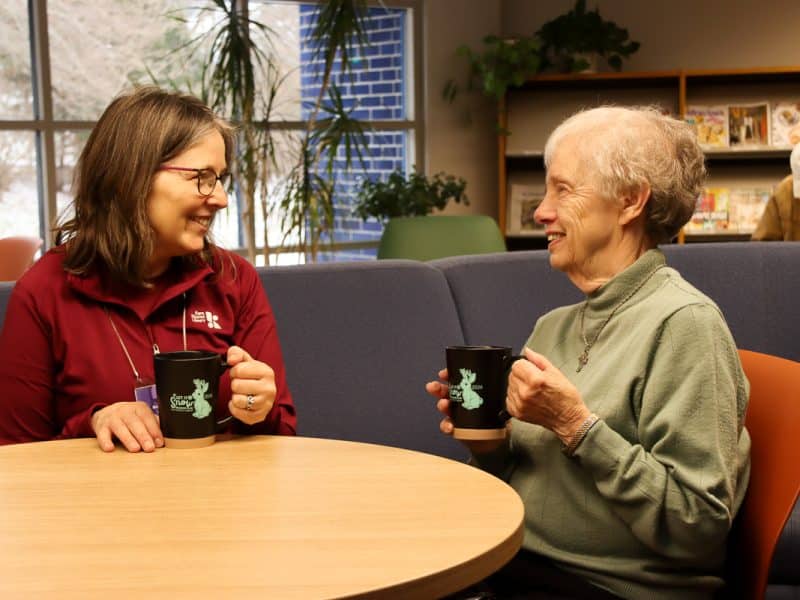BabyQ Raises IQ for Pregnant Women
When Dr. Mark Gostine, MD found out his daughter Emily was expecting her first child, healthy pregnancies became an interest of his. This interest sparked babyQ, a website and mobile app dedicated to helping mothers have the healthiest pregnancies — and babies — possible.
Finding out she was pregnant with her first child came as a shock to Emily Brann. That’s true for many women. Soon after this surprising news, however, Brann realized she had an advantage that most women do not. She had a direct line to a physician at all hours of the day and night — her father.
“When you are pregnant, especially with your first child,” Brann says, “it is a very vulnerable and insecure time in your life. But it’s also very empowering.”
Brann sent texts to her father, the physician, for advice. What should she eat? What kind of exercise is good and what kind is too much? How much should she change her lifestyle? What effect would daily stress have on her baby? Most of all, she wanted to know: what could she do to have the healthiest baby possible?
Brann’s father, Mark Gostine, MD, sent back texts of advice to his daughter. Dr. Gostine is a specialist in pain management (founder and president of Michigan Pain Consultants), not obstetrics, but with the anticipation of his first grandchild, healthy pregnancies quickly became a keen interest.
“Initially, I gave Emily a lot of nutritional tips,” says Gostine. “Then I was lying in bed one night, thinking about a recent study on vitamin D deficiencies.”
Vitamin D deficiencies, Gostine had learned, appeared to have a strong link to preeclampsia, a condition in pregnant women involving soaring blood pressure and swelling of hands and feet. Preeclampsia can result in premature delivery, illness in the mother and baby, and even fatalities.
Gostine has been a physician for 30 years, and he has been voted one of the best 100 doctors in his field in the U.S. Nutrition and general health education have always been a passion, and he was accustomed to guiding his patients in health education. Thinking about the importance of vitamin deficiencies when it comes to pregnancies and births, he began to consider what else might make a difference in positive outcomes for his daughter and for women everywhere.
What if he created an app for his daughter and other pregnant women to use? Something that could quickly and easily answer all her questions about having a healthy pregnancy leading to a healthy child. Something that could increase her IQ about having babies. IQ… or, babyQ.
Gostine paired his medical knowledge with that of Gareth Forde, MD, PhD, obstetrician-gynecologist — and a clinical professor and a researcher — and the two physicians founded babyQ, a website, and a complementary app for Smart Phones and tablets.
Once a person has registered on the app or website, a 25-question survey gathers information about lifestyle, exercise, nutrition, and stress management, resulting in a score — the user’s babyQ score. BabyQ refers to this as the LENS system. After that, the user is offered daily tips personalized to her responses and chances to improve her score.
“I looked at studies of children born in the Netherlands during World War II,” Gostine says. “Children born during the Dutch famine had many more health problems than children born a year later, under healthier conditions.” From those tragic circumstances, Gostine says, has come valuable knowledge about what women can do to improve the health of their babies in utero.
Researchers saw less intellectual attainment over a lifetime in the babies born during famine, says Gostine. Babies were born smaller and earlier, metabolic rates were lower, blood sugars were at unhealthy levels. All because women weren’t eating right and had high stress levels.
Lack of prenatal care, Gostine says, “can lead to the kind of epidemic of diabetes that we are seeing today. Unlike the women of World War II, mothers today are overfed and undernourished.”
Gostine’s daughter, Emily Brann, is now expecting her third child, but finds that using babyQ is as helpful to her now as it was with her first child. “BabyQ is unique. When I looked for information online, I found plenty of sites with information about the baby’s development, but nothing about what I, the mother, could do to improve the baby’s health.”
Brann found the profusion of information online “overwhelming,” but not always helpful. She considers herself well informed about nutrition and good health habits. After all, she grew up in a physician’s household.
“I’m a big marathon runner, so I wanted to know about exercise. I’m also an adventurous eater, trying new foods, so I wanted to know what was safe to eat. I learned from babyQ that I couldn’t eat soft cheeses when pregnant. Unpasteurized cheese can cause listeria. And herbal teas can be problematic — there’s not enough research yet, but who wants to be a guinea pig?”
Doctors Gostine and Forde base babyQ data on extensive research and pass all the information used on the app by an advisory board of physicians. The scoring system is based on an analysis of 39,000 deliveries at Spectrum Health in Grand Rapids.
Stephen Rechner, MD, FACOG, executive director of Women’s Services at Spectrum Health, practicing also at West Michigan Obstetrics, is an advisory board member. “BabyQ is based on good common sense. Dr. Gostine researches his data to the nth degree, and I was happy to help — we haven’t done much in West Michigan to help infant mortality. And as a residency director, I’ve seen that at least 90 percent of our patients have smart phones that use apps.”
“We also use recommendations from the World Health Organization, The American College of Obstetricians and Gynecologists, the U.S. Food and Drug Administration (FDA), the Institute of Medicine, and thousands of articles from the most current scientific literature,” says Gostine.
“I’m honored to work on babyQ,” says co-founder of babyQ, Dr. Gareth Forde. “It’s a privilege to expand upon work that so many people are doing across the world to improve pregnancies. BabyQ will help women understand how they can impact pregnancies in a positive way and have better outcomes.”
Less than a year after its launch, babyQ has been downloaded in 21 countries and has more than 10,000 users, saya Brann. “When you are pregnant, everyone seems to be eager to give you advice,” she says. “BabyQ gives you medically sound advice you can use.”
Zinta Aistars is creative director for Z Word, LLC, writing and editing services, and editor of the literary magazine, The Smoking Poet. She lives on a farm in Hopkins.
Photography by Adam Bird

